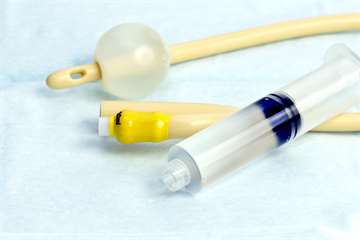Preparing for the appointment
5
'Dark trousers hide any leaks'Here are some tips for avoiding difficulties on the day:
-
Bring along a couple of changes of close-fitting underwear and trousers/shorts in a dark colour (dark colours are more discreet if leaks happen).
-
Buy some small and large pads and bring them with you - these can be bought from most supermarkets and chemists.
-
Contact PCUK to request a surgery support pack which includes samples of pads and information booklets. Or call their nurse helpline number 0800 0748383.
-
Plan how to get to and from the appointment. If you are going to be travelling by car, you could bring a disposable mat or towel to sit on in the car in case of leakage.
-
If you have to take public transport, think carefully about what to wear so you can hide any unexpected accidents/leaks.
-
Think in advance about where the toilets are on your way home so you are prepared if you need to go urgently.
3
Bring some books or other activities to help pass time whilst you wait. You will be encouraged to drink lots of fluids.Hear how John's TWOC appointment went:
Taking the catheter out
Men are often anxious about this appointment and are concerned that it will be painful. But most men say that having the catheter removed is usually a simple, relatively painless procedure. Hear men talking about their experience of TWOC below:
2
The nurse will attach a (needleless) syringe to the catheter port and take out the water that is inflating the balloon. Without the balloon to hold it in place, the catheter will come out when pulled gently. Men often describe it as 'a slithery feeling' and say that it can sometimes 'sting'.
4
The lady that took the catheter out was talking to me all the time and when she took it out, it was almost like the feeling when you are in a car and go over the bump of a bridge and you go whoa, and it wasn’t painful.Be prepared for being unable to control your bladder when the catheter is removed - you could leak small or large amounts of urine. Try not to worry, this initial leakage is entirely normal and should improve over time.
Anything else I need to know?
Have the pads ready to put on and some tight-fitting underwear to hold the pad in place. You will not be allowed home until you have passed urine. So, after the catheter has been removed, you will be asked to have several drinks until you are able to pass urine normally. It may be necessary to scan your bladder with a small hand held machine after you pass urine to make sure your bladder has emptied completely.
Very rarely, men are unable to pass urine when their catheter is removed. You may hear this called ‘retention of urine’. This could mean the catheter has to be reinserted. The medical team will discuss with you when to try removing the catheter again.
It is important that you try not to compare yourself to other men at the appointment. They may have had a different operation to you and everyone is affected differently.